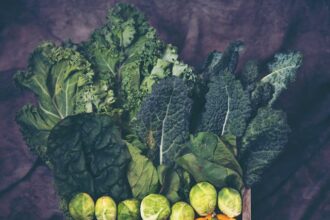Research conducted by Honorary Research Fellow Dr Daniel Natusch from Macquarie University’s School of Natural Sciences, in collaboration with scientists from several international institutions, sheds light on the remarkable efficiency of python farming in Southeast Asia. The study, published in Scientific Reports, compares the growth and protein conversion rates of reticulated pythons (Malayopython reticulatus) and Burmese pythons (Python bivittatus) on commercial farms in Thailand and Vietnam.
Unlike conventional livestock such as chickens and cattle, pythons demonstrate superior feed-to-weight conversion ratios, reaching slaughter weight within their first year after hatching. According to Dr Natusch, snake meat is white and high in protein. It offers a sustainable alternative to traditional livestock in regions grappling with food insecurity exacerbated by climate change and resource depletion.
The study highlights how python farming requires minimal water and food input compared to conventional livestock, making it a viable option in areas facing agricultural challenges. Dr Natusch emphasises that while snake meat is already a staple in diets across Southeast Asia and China, mainstream agricultural research has primarily overlooked its potential.
Professor Rick Shine, co-author from Macquarie University, underscores the economic benefits and environmental advantages of python farming over traditional livestock farming. Snake farms, typically large barns with optimal basking conditions, sidestep many animal welfare concerns associated with caged mammals and birds. Cold-blooded reptiles like pythons are extraordinarily efficient at converting food into body tissue, far outpacing warm-blooded creatures in energy efficiency.
The research team’s experiments with feeding pythons various protein sources, including agricultural waste and vegetable proteins hidden within meat-based sausages, revealed a surprising adaptability. Pythons can digest soy and other plant proteins, demonstrating their ability to thrive on a diverse diet without compromising growth rates or welfare. This flexibility not only enhances food production efficiency but also significantly reduces waste generation, offering hope for a more sustainable future.
From an environmental perspective, python farming is a step in the right direction. Pythons produce fewer greenhouse gases and minimal water and solid waste than traditional livestock, making them an environmentally sustainable choice. Moreover, their ability to utilise agricultural by-products effectively further reduces waste generation, offering a promising solution to the environmental pressures associated with conventional agriculture.
Despite these benefits, the researchers acknowledge that python farming may face cultural and regulatory challenges outside regions where snake meat is culturally accepted. Professor Shine notes that while python farming presents significant opportunities in countries with a historical precedent for consuming snake meat, its adoption in regions like Australia or Europe may need to be faster due to cultural barriers.
The study underscores the potential of python farming as a sustainable solution to global food insecurity and environmental pressures associated with conventional agriculture. By highlighting the efficiency and versatility of pythons in converting waste into valuable products, the research advocates for further exploration and integration of snake farming practices into global agricultural strategies, particularly in regions where alternative food sources are urgently needed.
More information: D. Natusch et al, Python farming as a flexible and efficient form of agricultural food security, Scientific Reports. DOI: 10.1038/s41598-024-54874-4
Journal information: Scientific Reports Provided by Macquarie University








